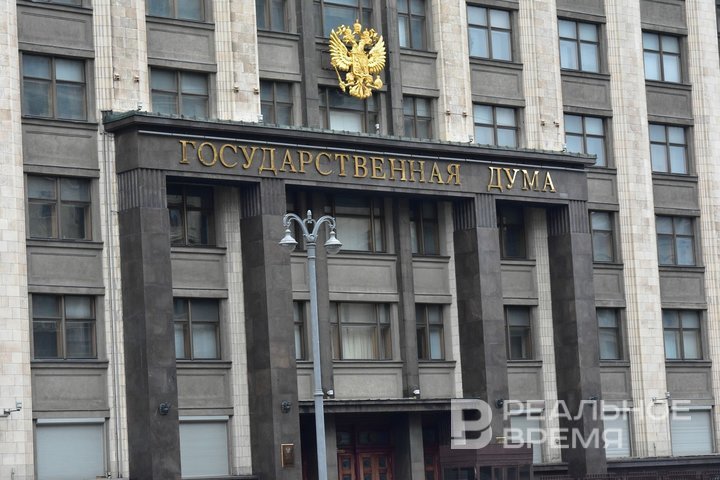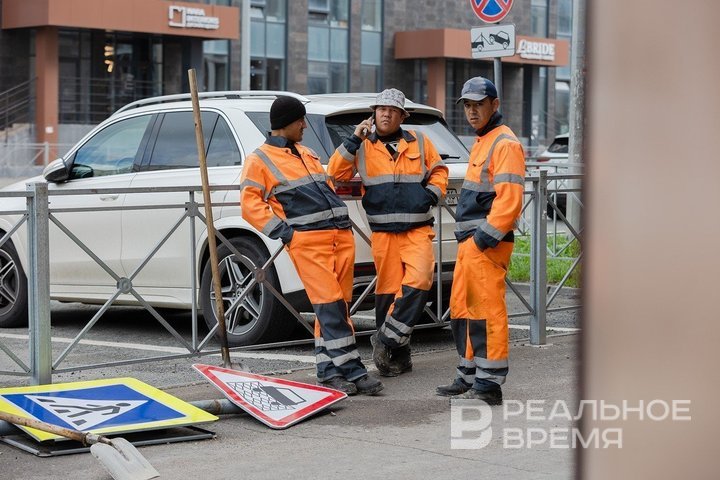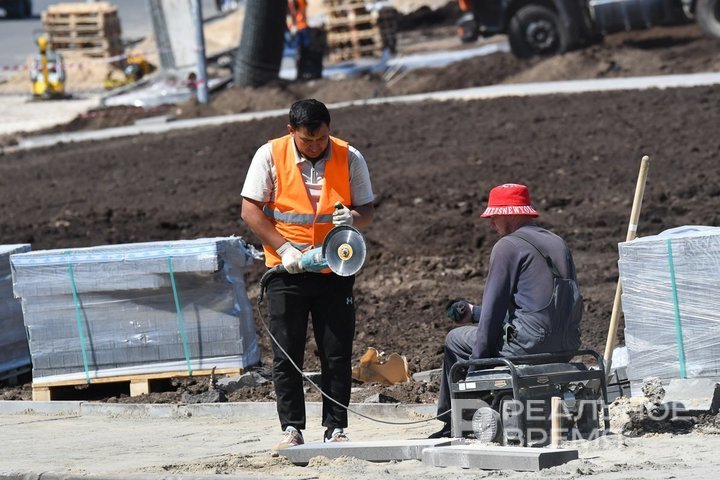The list of laws for newcomers is growing: what will the tightening migration policy lead to?

“The very concept of migration policy needs to be revised. Until now, it has been believed that migration solves economic and demographic problems and ensures political stability. This is the basic approach that needs to be changed,” said Yuri Krupnov, Chairman of the Supervisory Board of the Institute of Demography, in an interview with Realnoe Vremya. The Russian authorities have taken newcomers seriously — since the beginning of 2024, the State Duma has adopted six laws in this area. And according to experts interviewed by Realnoe Vremya, this decision is quite systematic and logical. However, this is not enough — migration policy needs a full-fledged revolution. Read about how the legislation for newcomers has changed over the summer and what consequences this will lead to in a report of Realnoe Vremya.
What has changed for migrants and what may change
At the moment, the State Duma is considering 28 bills on migration policy, six of which were introduced back in August. This was reported by the Chairman of the Chamber Vyacheslav Volodin. According to him, a number of bills are aimed at tightening migration legislation. In particular, it is proposed to:
- prohibit low-skilled labour migrants from bringing their relatives;
- introduce mandatory fingerprint registration of foreign citizens upon entry to Russia;
- restrict access of foreign citizens to a number of professions, including in medicine and education.
The Chairman of the Chamber emphasised that these initiatives have received support from all political factions of the State Duma. He also noted that deputies are actively working in the regions and meeting with the population in order to better understand the problems and reflect them in legislative initiatives.

According to Volodin, in 2024, the State Duma has already adopted six laws in this area. Among other things, the list of grounds that prohibit employers from hiring migrants as specialists has been expanded, and foreign citizens who have received a patent are required to find employment. To avoid fines, employers should use updated notification forms, in particular, about concluding an employment or civil law contract with a foreigner. In addition, starting in 2025, a register of controlled persons will be introduced in Russia, which will include data on migrants with expired or cancelled documents, as well as those who have violated migration legislation.
How do new laws affect the number of migrants?
In the first quarter of 2024, the number of migrants in Tatarstan decreased — 2,200 foreign citizens entered the republic, according to the Tatarstan Statistics Service’s data. During the same period in 2023, this number was 2,800. It is noteworthy that the number of migrants from the CIS countries fell especially noticeably — by 20%.
In turn, in June-July 2024, compared to the same months of 2023, their number, on the contrary, increased — from 37,000 to 70,000, Realnoe Vremya was told by the Ministry of Internal Affairs of Russia in Tatarstan. This can be associated with international events in the republic.
At the same time, over the year, the number of foreign citizens in the region increased by 30,000, not counting illegal immigrants. This was reported at the end of August by the Chairman of the State Council of Tatarstan Farid Mukhametshin.
After the restrictions, the republic was recommended to tighten work with migrants. But Tatarstan is interested in them, Mukhametshin said:
“Such power exists, but we are in no hurry to use it, we need workers.”

Russian statistics show a similar trend: in the first half of 2024, 11.4% more foreign citizens entered the country than in the same period last year. These figures are 7.9 million and 7 million, respectively.
It is worth emphasising that the statistics provide the official total number of foreign citizens without taking into account the purpose of the visit and the country of citizenship.
“The legislation should have regulated these issues from the very beginning”
“Everything was moving towards tightening migration legislation because most migrants come straight from villages to large cities in Russia. They often have not even seen the capitals of their home countries, naturally, they have a different level of culture. I agree that some behave inappropriately, but these are some,” believes editor-in-chief of Labour Migrant newspaper Zakir Sariyev. “However, the legislation should have regulated these issues and introduced relevant laws from the very beginning, but Russia followed the inertia of the USSR, accepted everyone...”
As for the decrease in the number of migrants due to tightening legislation, Sariyev did not agree with Krupnov. In his opinion, this will become a big problem for Russian citizens due to the increase in prices:
Since the change in the exam procedure, many have begun to pass them poorly. As a result, there is now a shortage of workers, which will ultimately lead to higher prices for the end consumer — Russians. If last year migrants (auxiliary workers) received about 2,500 per day, now this amount is 5-8,000.

The speaker also touched upon the problem of unregistered migrants — in this matter, the responsibility should be borne by the owners of apartments, not foreigners, Sariyev is sure.
“The absence of registration is not the fault of migrants, it is the fault of the host, the homeowners. They simply do not want to register foreigners, and the problems arise for migrants. First of all, we need to work with the owners of apartments. The authorities punish foreigners, but where can they go, live on the street, or what? They are simply not registered. And foreign citizens, according to Russian law, cannot register themselves! Why drive them into a corner, it is better not to let them into the country than to torture them. The problem of registration can only be solved by working with the owners who rent them housing. If we do not work with them, do not force them to register migrants to whom they rented housing, then we will not move from dead centre. In the 10 years that I have been dealing with migration issues, the situation here has not changed at all. They are not registered, employers do not officially hire them, the police cannot find them if necessary, and as a result, the safety of city residents suffers, he said.”